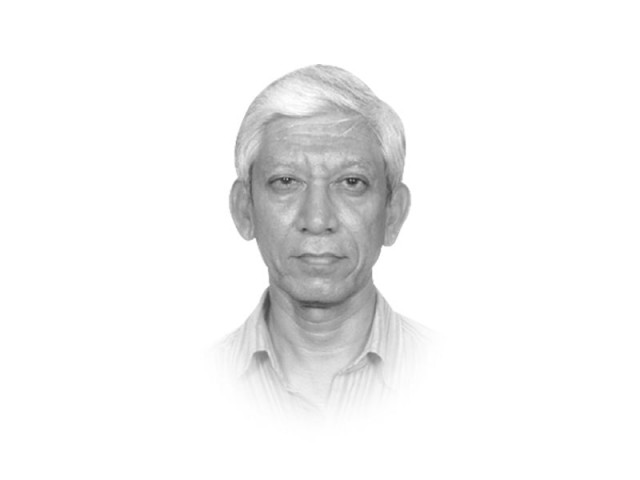Who am I?
The first thing a person trying to answer of who they are, is supposed to come up with the name of his caste or tribe.

Who am I?
In most parts of rural or semi-urban Sindh, when a person who appears to be from a particular region of the province is asked to define himself with a typical question: “Pan kair ahio?” (‘Who are you?’), he knows from his cultural experience what exactly the questioner is interested in finding out; he knows that the question is not the same as when he is asked to disclose his identity while, for example, trying to gain access to a government office. The first thing the person trying to answer the question is supposed to come up with is the name of his caste or tribe. The question that generally follows the first one is “Kathe vetha ahio?” (literally, ‘Where do you sit’? meaning, ‘Where do you reside?’)
If the questioner has sized the person up and recognised him as someone connected with agriculture in one of various ways of working using his two hands, the person is expected to tell the name of the owner of the land on which he works and where he and his family are ‘allowed to stay’. The person’s own name comes — if it does at all — only afterwards.
The above sequence of questioning can be generalised for most geographical areas of present-day Pakistan that still retain the traditional tribal/semi-tribal and feudal/semi-feudal characteristics but have been increasingly feeling the pressure of change in the shape of urbanisation. And, as a consequence, the answer to the same basic question (‘Who are you?’) has to be slightly modified depending on the attributes of the particular situation.
Ever since ‘identity’ became the recognised basis of politics in our part of the world — precisely, from the latter half of the 19th century onwards, when the new ways of communication put a particular group of people face to face with people from ‘other’ groups that appeared to be quite different from themselves — the outward question (‘Who are you?’) and its inward counter-question (‘Who are we?’) have been asked, debated, answered, emphasised, negated, accepted, rejected and so on, endlessly, without a break.
The same primary question, when asked in an urban setting in Pakistan today, can produce a variety of interesting answers. In such situations, a person’s identity can be a sum total of several aspects: ethnic, linguistic, religious, sectarian, caste, geographical origin, and so forth, with one of these overriding others. In a large number of cases, educational or professional background becomes the first thing a person chooses to introduce himself or herself with. There can also be, in a few cases, at least, when some personal ‘choice’ overtakes all the ‘immutable’ attributes and one hears such unconventional self-introductions like “I’m a gay painter”.
However, in most cases still, one or another ‘immutable’ attribute actually makes some of the most important decisions concerning one’s life as a member of a social group — choice of a spouse in an arranged marriage, deciding who to vote for in elections (when and if they take place), choosing how, where and in what manner one’s dead body would be taken care of — and, indeed, in some traumatic situations, whether or not one would be allowed to die a ‘natural’ death.
One may try to see this perpetual questioning of the traditional kind — getting more than a little non-traditional with the passage of time — in the background of the process of a vast and deep socio-economic change we have been going through and participating in with our individual and collective decisions. One could sense in it a captivating and revealing tug of war between people’s ‘chosen’ and ‘immutable’ attributes. The egalitarian nature of the most (though by no means all) significant advances in technology push their makers and users towards the distant but inevitable goal of individualism and democracy.
Some such technologies experienced by the various groups of people in the subcontinent within the first fifty years — roads, railways, water-channels, printed papers, books and schools — prompted smaller groups of people to align themselves with other groups with whom they felt they had something in common. It was a political need as each group of people wanted to secure its access to the new kinds of resources born out of the new technologies.
The groups that had privileged access to traditional resources (landowners, noblemen, owners of knowledge and literacy — all belonging to the so-called upper castes) were quicker and more successful in making alliances with their likes by emphasising certain common attributes of identity and suppressing (or temporarily ‘forgetting’) certain differences. You must have heard leaders of different hues and colours urging a large (imagined) community of people like this: “Is waqt hamain aapas ke sab ikhtalafat bhula kar muttahid ho jana chahiye” (‘At this time we should forget all our differences and get united’). The trouble is that forgetting the differences is not the same thing as addressing them; something consciously, temporarily can, at some other time, spring back and start playing its role.
In any case, such privileged, upper caste groups and their alliances across variously defined geographical or other areas tried with a high degree of success to impose their own political (religious, sectarian, ethnic, linguistic) agenda upon the groups below them — traditionally unprivileged and dispossessed mainly due to their caste status.
Published in The Express Tribune, May 19th, 2012.














COMMENTS
Comments are moderated and generally will be posted if they are on-topic and not abusive.
For more information, please see our Comments FAQ